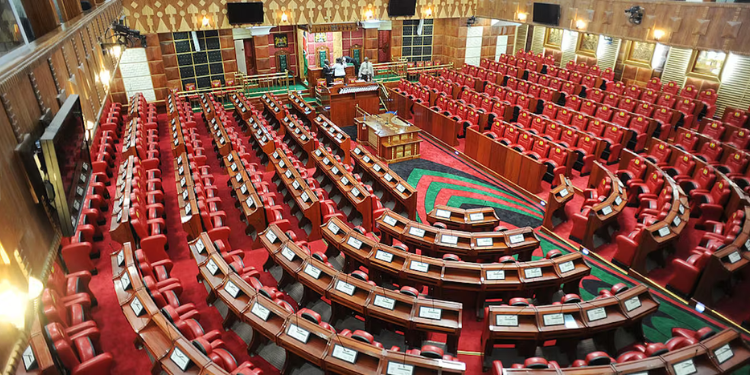Kenya’s Parliament has passed the Computer Misuse and Cybercrimes (Amendment) Bill, 2024, granting authorities sweeping powers to shut down websites, social media accounts, and digital devices suspected of promoting illegal activities.
The bill updates the original 2018 Act to address emerging threats in the digital space, but it has also sparked intense debate over its potential impact on freedom of expression and digital rights.
The bill was sponsored by Wajir East MP Aden Daudi Mohamed and published in the Kenya Gazette on August 9, 2024.
Details of the Bill
The amendment bill is designed to modernize the legal framework, addressing emerging digital threats and providing authorities with stronger tools to prevent, investigate, and prosecute cybercrime.
It expands definitions of cybercrime terms and introduces clearer definitions for terms like:
Asset: Includes physical, virtual, movable, and immovable property, encompassing digital assets such as cryptocurrency and NFTs.
Identity Theft: Now includes misuse of SIM cards, bank details, and subscriber information.
Virtual Account: Defined as a digital account acquired through virtual representation, though the term remains vague.
Under the proposed amendments, authorities would have the legal mandate to block or shut down websites and applications that are deemed to promote:
- Illegal activities
- Child pornography
- Terrorism
- Extreme religious or cultic practices
The bill also targets platforms that facilitate online fraud, cyberbullying, incitement, impersonation, and copyright infringement.
Popular platforms, including Facebook, X (formerly Twitter), Telegram, Instagram, YouTube, TikTok, Google, WhatsApp, and blogs, are specifically mentioned as frequent hotspots for cyber threats.
New Offenses and Penalties
Unauthorized SIM Swap
Under the new amendment bill, scammers who exploit two-factor authentication by fraudulently activating SIM cards in their possession could face up to two years in prison or a fine of Ksh200,000, or both.
Expanded Cyber Harassment Definition
The bill broadens the scope of cyber harassment to include posts that may lead someone to commit suicide.
Currently, harassment includes communication that causes anxiety, fear of violence, or property loss.
Phishing
Stealing sensitive personal information online can result in a fine of Ksh300,000 or a three-year jail term.
Aiding Digital Crimes
Assisting someone in committing a digital offense can result in a fine of up to Ksh7 million or a prison term of up to four years.
Severe Harassment Penalties
Convicted individuals may face up to 10 years in prison, a fine of Ksh 20 million, or both.
Cybercrime Threats on the Rise
Kenya is grappling with an unprecedented surge in cyber threats, prompting urgent calls for legislative intervention.
According to the Communications Authority of Kenya, a staggering 123 million cyber threats were detected between July and September 2023 alone.
Also Read: CS Kagwe Announces Fate of 5,000 Workers as Ruto Privatizes Companies
This alarming figure underscores the growing vulnerability of the country’s digital infrastructure.
The threats span a wide variety, including:
- Impersonation and Identity Theft
- Fake News and Disinformation Campaigns
- Hacking and Unauthorized Access
- Child Exploitation and Abuse Content
- Online Fraud and Phishing Scams
- Incitement to Violence and Hate Speech
- Cyberbullying and Harassment
- Copyright Infringement
Cybercriminals are leveraging phishing schemes, fake investment platforms, and social engineering tactics to defraud unsuspecting users.
The rise of mobile money and digital banking in Kenya has made the population particularly vulnerable to such attacks.
Critics Raise Red Flags
Digital rights advocates and civil society organizations have expressed concern that the bill’s broad language could be misused to bring disputes and suppress freedom of expression.
Also Read: Government Reopens Applications for NYOTA Programme; How to Apply
The lack of clear definitions for terms such as “extreme religious practices” or “illegal activities” raises concerns about arbitrary enforcement.
“This bill could be weaponized against journalists, activists, and ordinary citizens who express dissenting views online,” said a digital rights lawyer who requested anonymity.
Follow our WhatsApp Channel and X Account for real-time news updates.

















![Billions Each Top Kenyan Bank Has Made So Far In Profits This Year [List] Q3 2025 Results For Equity, Kcb, Co-Op, Absa And Other Banks]( https://thekenyatimescdn-ese7d3e7ghdnbfa9.z01.azurefd.net/prodimages/uploads/2025/11/C0-OP-KCB-Equity-Absa-360x180.png)

























































